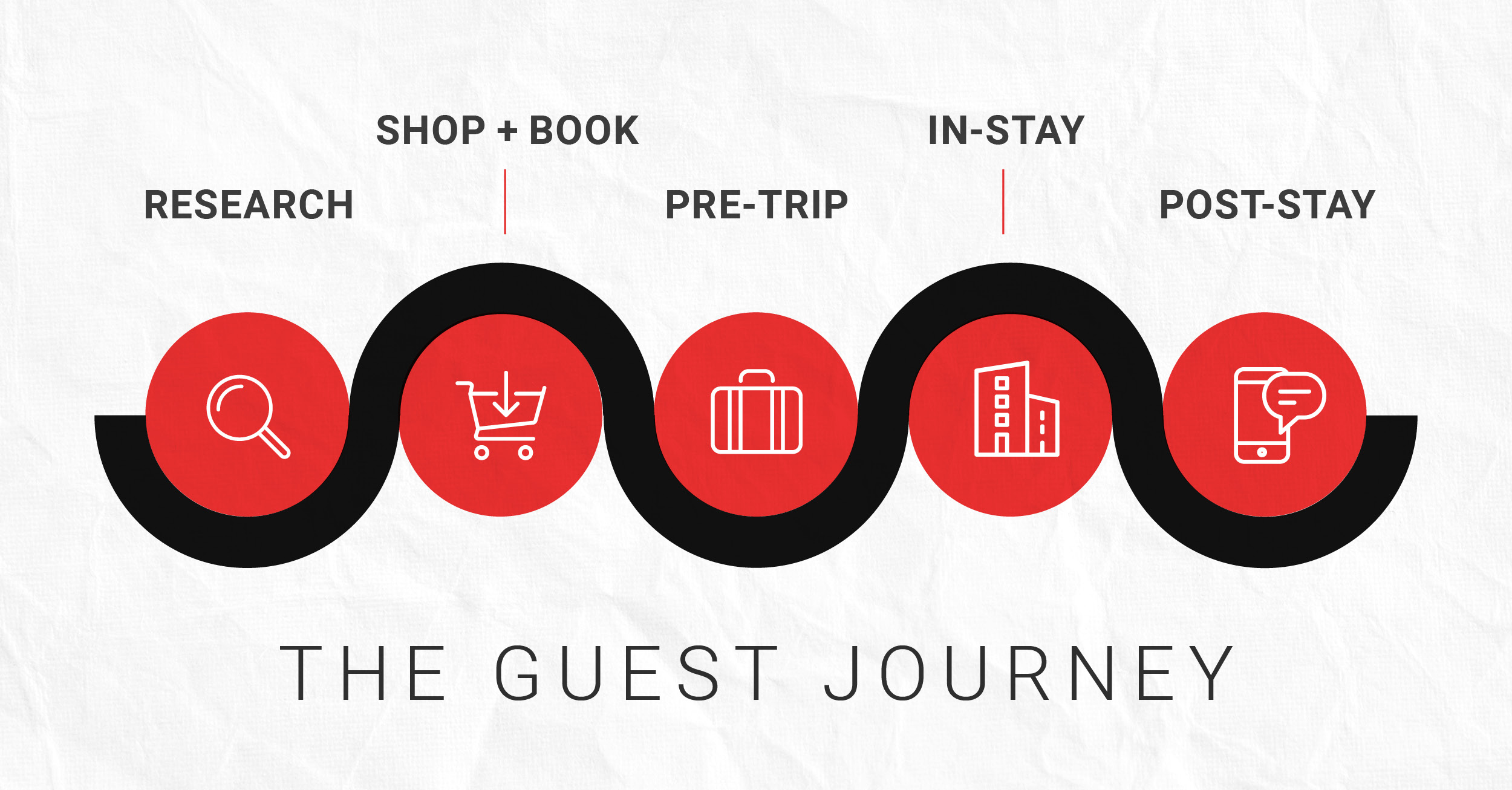Right now, there’s a lot of buzz around Guest Experience (GX). With the constant advancement of technology combined with the modern consumer, the meaning of GX is ever-evolving. It’s also becoming very apparent the hospitality industry is falling behind on the very thing its business is centered around: guests. Despite being guest-centric, why are so many hospitality brands still using outdated legacy systems and technology that creates friction and fragmented experiences throughout the guest journey? What can the hospitality industry learn from brands in other industries that are winning on the GX front? How can your brand not only compete with the most successful brands of today, but also position itself to constantly evolve with the changing landscape?
Our latest report,
Digital Transformation of the Guest Experience, answers these critical questions and provides a modern guest experience blueprint to help your brand begin its own digital transformation. Read a snippet of the report below or
download it now.
Customer Experience Becomes a Competitive Advantage or Disadvantage in the Travel Industry’s Future
Digital transformation is universally changing businesses. While becoming digital is important, the biggest opportunity for digital transformation is instilling modern DNA into the vision, purpose, and culture of aspiring brands. While digital implies a technological approach to competing, its power is in building brand agility and resilience in a transforming marketplace. As trends change, so do the brands and experiences guests seek and value. Modern brands must not only keep up with changing customers and technologies, but also must explore new ways to create and deliver new and relevant value throughout the entire guest journey as it evolves.
Digital transformation goes beyond marketing, operations, and the latest tech.
Modern brands are most successful when change purposely delivers meaningful, frictionless, and integrated experiences in the moments that matter to guests … in each touchpoint throughout the guest journey and lifecycle. Those individual and collective experiences become the brand. And, this is the challenge facing hospitality brands in their quest to digitally transform. Many executives aren’t 100% plugged into evolving guest behaviors, expectations, preferences, and aspirations. Yet, decisions are being made in the name of guest experience without actually being guest-centric. That’s just one of many difficulties involved in digital transformation. Many hospitality brands, for instance, are still burdened by legacy systems and technologies, silos, inadequate customer journeys and user experience (UX) design, outdated guest perspectives, etc.
For all of these challenges, these are also times for great innovation and, equally, disruption. Guest experience (GX) combined with modern technology becomes a catalyst for digital transformation and also a competitive advantage. That’s why these times represent so much promise and opportunity. Everything is open for improvement and re-imagination: not only in terms of technology, but in terms of how and with whom you work; in terms of processes and policies; and in terms of new perspectives from outside industries, which prompt you to learn, unlearn, iterate, and innovate.
Hospitality is a high-tech and high-touch industry. GX (from the guest’s perspective) is expected to be high-tech and high-touch.
This is why the future of GX needs architects focused on integrating modern tech and touchpoints at scale. Meaningful transformation and the resulting constructs for guest experience shouldn’t wholly be built upon legacy foundations. Legacy foundations are usually where we start, but that means our “thinking outside the box” is happening in a familiar paradigm, which is not the unfamiliar territory where new possibilities can be invented. Future customers are not rooted in legacy. Favorite devices, apps, and services influence them and how they value brands, products, and services. Those who build on blank canvases create the future, because they start with the questions: What if? and Why can’t we …?
The future GX needs re-imagination, ingenuity, and new technologies to bring improvements and ideas to life.
To get there, architects must observe the existing guest experiences versus what they really prefer. They must compare these experiences to those of other industries offering guest journeys, which are reshaping customers’ preferences and behaviors. Apply those insights to deliver a meaningful and unforgettable guest journey and experience. In the process, successful brands will modernize products and offerings, deliver innovative value propositions and solutions, and create agile models for business, systems, and operations. That’s the basis for cementing next-generation customer loyalty. Dated technologies and processes won’t open new doors of opportunity. The digital transformation of guest experience starts by asking new questions. Success comes by seeing modern guests in a new light, exploring alternative markets for inspiration, tracking how emerging technology trends impact consumer behavior, and learning to blaze new trails others will be forced to follow.
Download the report